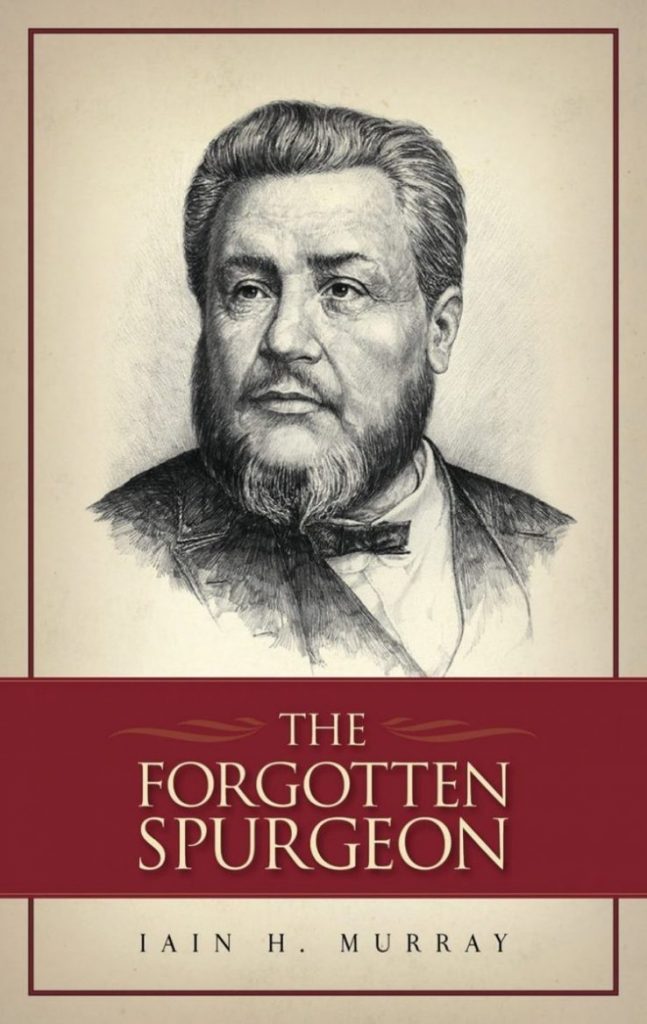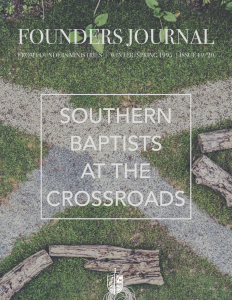Can there be a better known name among Baptists throughout the world than that of the great nineteenth century preacher, Charles Haddon Spurgeon? Probably not. And is it not true that just about every pastor quotes Spurgeon at one time or another?
A significant number of Baptist pastors may even be generally aware of the circumstances of Spurgeon’s life and ministry, that he went to London to become pastor of the New Park Street Chapel at a very tender age, and that he became the best known preacher of his day. Some may even know that his sermons were published internationally and read by thousands each week. Many may know about the orphanage, pastor’s college, and related enterprises which were sponsored by the Metropolitan Tabernacle in the full bloom of Spurgeon’s ministry. Most would perhaps be aware that Spurgeon preached to thousands. Most would be aware of his evangelistic fervor and of the many who came to know Christ through Spurgeon’s preaching of the Word. These things have not been forgotten.
But how many are aware that the young preacher’s arrival in London was not generally appreciated by many in the religious establishment (including some Baptists) and that Spurgeon was regarded as a throwback to former, less “enlightened” times because of the doctrines that he proclaimed? The publication of Iain Murray’s The Forgotten Spurgeon in 1966 (most of the chapters appeared first in The Banner of Truth magazine) provided the evangelical world with a carefully researched study of Charles Spurgeon as a defender of “the faith once delivered to the saints.”
In this excellent volume, which has undergone several reprintings, Murray examines the three major controversies in which Spurgeon played important role: 1) his commitment to Biblical Calvinism and hence his rejection of Hyper-Calvinism and Arminianism, 2) the controversy concerning Baptismal regeneration, and 3) the “Downgrade” controversy. Murray makes clear that Spurgeon’s doctrinal moorings never changed throughout his life.
Today’s pastor may be amazed to discover that the best known Baptist evangelist rejected the creative methodologies that were beginning to appear in his day, in favor of straight-forward gospel preaching. Murray makes us aware of Spurgeon’s resistance to these inventions by demonstrating that the great preacher believed the use of non-biblical phrases such as “open your heart,” or “decide for Christ,” did damage to the truth and to the souls of men. As Spurgeon said, “The gospel is, `Believe on the Lord Jesus Christ, and thou shalt be saved.’ If we think we shall do more good by substituting another exhortation for the gospel command, we shall find ourselves landed in serious difficulties.”
Valuable lessons may be learned from Spurgeon’s experience and applied today. Many of the issues are very similar their contemporary counterparts. But above all, Murray demonstrates that Spurgeon was what he was, because he was a man who believed the biblical doctrines of God’s grace to sinners. Such a book is of particular value to Southern Baptists. It was during the time of Spurgeon’s ministry in London that the Southern Baptist Convention was taking shape. And, it was same Calvinistic theology which Spurgeon owned that was loved and proclaimed by the founders of the Convention.
We have seen a theological downgrade in our century that parallels the one experienced by Charles Spurgeon over a hundred years ago. What will our response be? Shall we take the easy road of accommodation or stand up for the faith? Iain Murray’s survey of Spurgeon’s heroic defense of the faith should inspire us to do the same. Every pastor needs to read this work carefully to see if he might have the courage to stand for the cause of God and truth today.






















